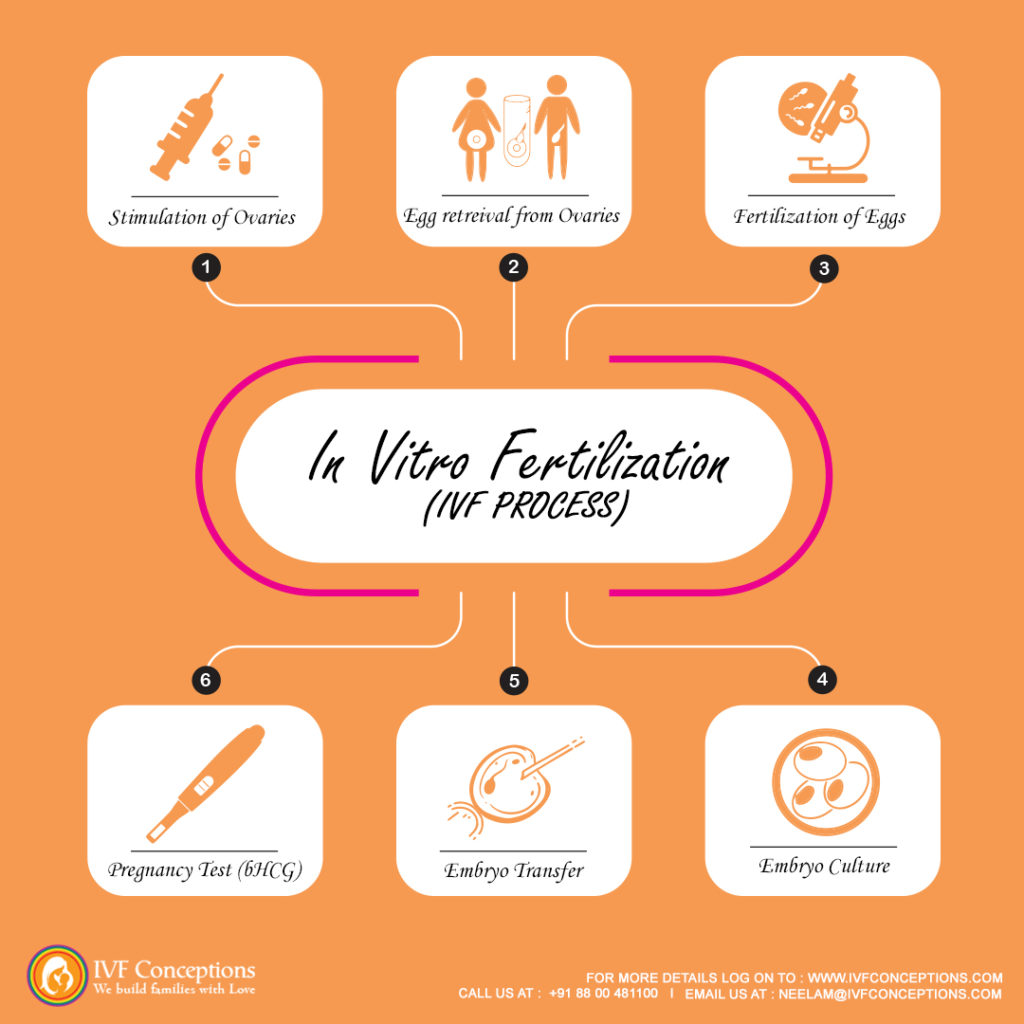The 2-Week Wait After IVF is an anxious time for the Intended parents.

If you are going through an infertility treatment feeling overwhelmed and struggling with uncertainty is a common thing. According to the Centers for Disease Control and Prevention (CDC), the average cost of one IVF cycle in the USA is between $12,000 – $15,000, and success rates of in vitro fertilization (IVF) cycles in the United States for live birth rate per IVF cycle is 30-40% and multiple birth rate per IVF cycle: 20-30%. This means, not all IVF processes can guarantee a successful pregnancy and birth. One of the most frustrating parts of assisted reproduction technique (ART) is the uncertainty of successful pregnancy. In this article, we will learn about some tips for coping with the 2 weeks wait “2-week wait after IVF”.
The 2 weeks wait (also known as the “beta wait”) is the period of time between the embryo transfer in the uterus of the mother and the pregnancy test during an in vitro fertilization (IVF) cycle. It can be a difficult and anxious time, as you wait to find out if the treatment was successful. Usually, it takes a lot of time to plan, prepare, test, and eventually start the actual IVF process. So, by the time of blood test to confirm pregnancy comes, a lot of hope and anticipation for the good news is expected from the couple.
In-vitro fertilization (IVF) is a medical procedure in which a woman’s egg is fertilized by sperm in a laboratory setting, and the resulting embryo is then transferred to the woman’s uterus in the hope of implantation. As the IVF success rate is not 100%, so mostly more than one IVF cycle and embryo transfer are needed for a successful pregnancy. IVF is the most widely used assisted reproductive technology (ART) and is an emotionally and financially demanding process for the intended parents.
Step-by-Step Descriptions of the IVF Procedures:
- Step 1: Control Ovarian Hyperstimulation
- Step 2: Egg Retrieval.
- Step 3: Fertilization and Embryo Culture.
- Step 4: Embryo Quality.
- Step 5: Embryo Transfer.
- Step 6: BHCG test to confirm pregnancy.
The 2-week wait after the embryo transfer in an in vitro fertilization (IVF) cycle is a period of time when the woman must wait to take a pregnancy test to confirm if the procedure was successful. During this time, the woman may experience physical and emotional symptoms as she waits for the results of the pregnancy test. The 2-week wait can be a challenging time for many women and their partners, as they are filled with hope and anxiety about the outcome of the IVF cycle.
The success of the IVF cycle depends on many factors like the age of the intended mother, sperm quality, uterus environment, etc. The success rate of the IVF cycle is estimated to be around 40-50% depending on the clinic and age of the intended mother, sperm quality, and uterus lining of the woman.
The intended mother is asked to return to IVF clinics after two weeks to confirm the pregnancy after the embryo transfer is done. To check the pregnancy, a test called the Beta-HCG test is conducted, this test measures the level of beta human chorionic gonadotropin (hCG) in the blood, which is a hormone produced during pregnancy. The elevated value of B-HCG indicates successful implantation. Although women do perform urine tests at home, which produce accurate results, fertility doctors prefer to perform blood tests to assess the women’s hormonal status before confirming pregnancy. Because gonadotropin is released by the placenta and it is expected that by 2 weeks after conception, the level of BHCG will be high enough to be detected in a blood test.

Read more:
How does the IVF process work?
Tips to improve the success rate of IVF?
Here are some tips for coping during the 2-week wait after IVF:
Here are some tips to cope with 2 week’s wait after IVF:
#1. Take care of yourself:
It’s important to take care of your physical and emotional well-being during the two-week wait. Eat a healthy diet, exercise regularly, and get enough sleep. It’s also important to practice self-care, such as taking breaks, engaging in activities that you enjoy, and seeking support from friends and loved ones.
#2. Avoid stress:
Try to minimize stress as much as possible during the two-week wait. This may mean avoiding activities that cause you anxiety, setting boundaries with others, or finding healthy ways to cope with stress, such as through exercise or relaxation techniques.
#3. Distract yourself:
Find ways to distract yourself from the waiting and anticipation. Engage in activities that you enjoy, such as hobbies, spending time with friends and loved ones, or taking up a new hobby.
#4. Seek support:
It’s normal to feel anxious and emotional during the two-week wait. Consider seeking support from a therapist or joining a support group for people undergoing fertility treatment.
#5. Trust the process:
Remember that the outcome of your IVF cycle is out of your control. Trust that you have done everything you can to prepare for this moment and try to let go of any anxiety or stress you may be feeling.
#6. Stay optimistic:
As the outcome of IVF cycles cannot be predicted from the beginning, however, it is a good idea to maintain a positive attitude and be ready to accept any outcome. If a couple remains positive, it is not only good for mental health but along bring better outcome medically. Try to focus on positive thoughts and remind yourself of the reasons why you decided to undergo IVF.
#7. Be patient:
The 2-week wait can be a challenging time, but it’s important to be patient and trust the process. Remember that your body is doing its best to create a healthy pregnancy.
#8. Limit online research:
While it may be tempting to read about IVF success stories online, it’s important to limit your exposure to information that may trigger anxiety or disappointment.
#9. Avoid comparing yourself to others:
Every IVF journey is unique, so it’s important not to compare your experience with others.
#10. Keep busy:
Find ways to occupy your time and mind, such as taking up a new hobby, reading, or volunteering.
It’s true that the two-week wait is a difficult time for intended parents, and it’s okay to feel a range of emotions, so try to focus on taking care of yourself and finding your own ways to cope with the waiting and uncertainty.By following these tips, you can help cope with the 2 weeks wait after IVF and better manage your emotions during this challenging time.
If you’d like to learn more about IVF, Egg Donation, or surrogacy services globally, check out the rest of our website at IVF Conceptions. We offer legally secure and affordable surrogacy consulting services for FREE. We offer fertility and third-party reproductive services for all people, inclusive of age, race, income, sex, sexual orientation, gender identity, marital status, or geographic location.

